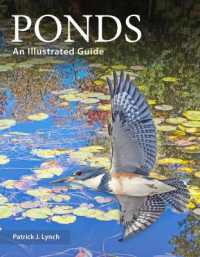Full Description
How did Russian writers respond to linguistic debate in the post-Soviet period?Post-Soviet Russia was a period of linguistic liberalisation, instability and change with varied attempts to regulate and legislate language usage, a time when the language question permeated all spheres of social, cultural and political life. Key topics for debate included the Soviet linguistic legacy, the past and future of Russian, linguistic variation, language policy and linguistic ideologies. This book looks at how these debates featured in literature and illustrates the discussion through six interpretive readings of post-Soviet Russian prose. It analyses both the writers' explicit and implicit responses and in doing opens up new perspectives for sociolinguistic research on metalanguage. Spanning a number of theoretical fields including language variation, language policy and literary stylistics, Ingunn Lunde provides a coherent way of triangulating these fields by the introduction of the concept of performative metalanguage. The book also offers insight into the role of writers in the broader social and political context of language culture in contemporary Russia and into the various ways in which the linguistic and aesthetic practices of literary art can engage in questions related to the negotiation of linguistic norms.Key FeaturesHighlights the role of writers, and of fiction, in the language debates of post-Soviet Russia Looks at the subject from the point of view of literary language discussing six texts in detailFeatures work by Tatiana Tolstaia, Evgenii Vodolazkin, Evgenii Popov, Vladimir Sorokin, Valerii Votrin and Mikhail GigolashviliIntroduces a new concept of a 'performative metalanguage' one that opens up new perspectives for sociolinguistic research on metalanguage Analysis of Key TextsEvgenii Popov: 'The True Story of 'The Green Musicians''Vladimir Sorokin: 'Monoklon'Tatiana Tolstaia: 'The Slynx'Evgenii Vodolazkin: 'Laurus'Valerii Votrin: 'The Speech Therapist'Mikhail Gigolashvili: 'The Occupation of Muscovy: a national-linguistic novel'
Contents
Acknowledgements
Note on transliteration and translations
Introduction: sociolinguistic change and the response of literature
Part I. Post-Soviet language culture
Chapter 1. Newspeak, counterspeak and linguistic memory
Chapter 2. Challenging the standard
Part II. Language, writers and fiction
Chapter 3. Languages and styles of post-Soviet Russian prose
Chapter 4. The literary norm
Part III. Writers on language: telling and showing
Chapter 5. Pisateli o iazyke: writers' reflections on language
Chapter 6. Abanamat: reactions to the ban on profanity in art (2014)
Part IV. Language on display
Chapter 7. Confronting linguistic legacies: Evgenii Popov and Vladimir Sorokin
Chapter 8. Language, time and linguistic dystopia: Tatiana Tolstaia and Evgenii Vodolazkin
Chapter 9. Language ideologies and society: Valerii Votrin and Mikhail Gigolashvili
Conclusion: Towards a theory of performative metalanguage
References
Index





